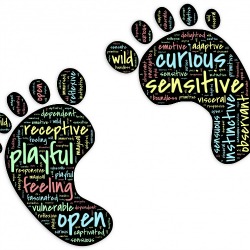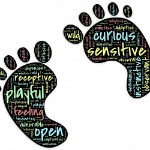10 ways to understanding Children’s Emotions and The Learning Power of Play
 Play is an outlet for children to make sense of what they see, think and feel. It allows them the opportunity to express themselves, which is a vital part of their physical, intellectual and emotional development. Children can often struggle with their feelings and this frustration can lead to difficult behaviour, such as tantrums. It is important that parents take an active role in their child’s emotional development and to lead by example when it comes to expressing anger, sadness and frustration in a healthy way.
Play is an outlet for children to make sense of what they see, think and feel. It allows them the opportunity to express themselves, which is a vital part of their physical, intellectual and emotional development. Children can often struggle with their feelings and this frustration can lead to difficult behaviour, such as tantrums. It is important that parents take an active role in their child’s emotional development and to lead by example when it comes to expressing anger, sadness and frustration in a healthy way.
- The importance of play in a child’s life cannot be underestimated. Play is a child’s work and is ‘serious stuff’.
- Play helps children develop self-esteem and good social skills. It is also an important element in improving your child’s motor skills, problem-solving abilities and aids physical and intellectual development.
- Can you, as a parent, spend 20 minutes a day playing, listening and talking to your child?
- Our ability to feel and express our emotions helps us to stay connected with the world around us and to work through our feelings in healthy way.
- Children will express their sadness and grief quite naturally given the right amount of support. Children and young people learn how to express and deal with emotion from their parents and family members.
- We need fear to keep us safe. However, if children are too full of fear they will not be able to stand up for themselves or to express themselves. It is important to show children that feeling fear is normal. Tell them some of your fears and how you cope, in doing this, you enable your child to develop these skills too.
- Children need boundaries around the good stuff just like they need boundaries around fear and anger.
- Children’s natural impulse is to hit out when they feel angry. Adults need to be able to help children to manage and express their anger in a healthy way.
- A child who displays too little anger may be open to bullying and may be seen as a bit of a ‘wimp’ and a pushover.
- A child who expresses too much anger may become a bully and have difficulty in managing emotions without becoming aggressive or even violent. This can make it difficult for the child to have healthy social relationships.
This article is part of our weekly ’10 Ways to’ series of parenting tips, and is by One Family’s Director of Children and Parenting Services, Geraldine Kelly. Coming up next week; 10 Ways to Talk to Your Child about Your Family Situation.
LIVE Facebook Q&A on this topic with Geraldine, 2 March from 11am-12pm on One Family’s Facebook page. Join in and post your questions.
Next you might like to read, 10 Ways to Support a Child Who is Being Bullied or 10 Ways to Support a Child Who is Bullying
Find out more about our parenting skills programmes and parent supports. For support and information on these or any related topics, call askonefamily on lo-call 1890 66 22 12 or email support@onefamily.ie.





